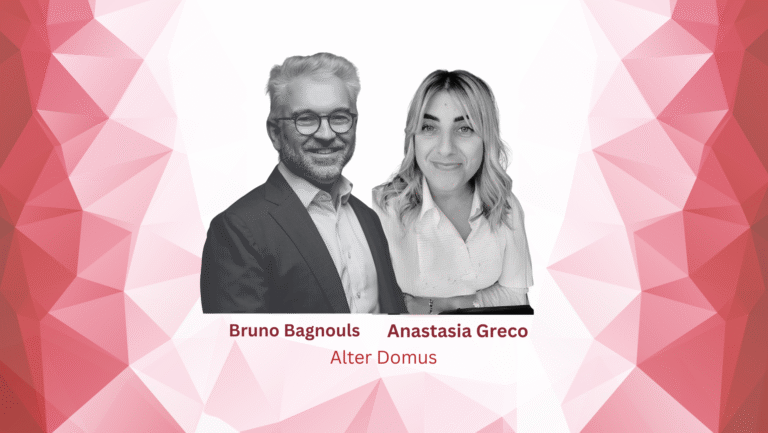We asked our speakers for a sneak peek about the upcoming topics at our E-nsights conference.
Let’s get inspired while waiting for our event of the year!
What do you think will influence PE-VC the most in the next decade?
Alex Estevez (Accel): A new wave of software driven innovation is changing the globe, and those investment firms that aggressively support this transition should experience meaningful investment returns.
Alexander Tkachenko (2be.lu): “Digitalization will be the biggest trend, in my opinion. New technologies like blockchain, application of artificial intelligence could boost the effectiveness of investments, increase capital velocity, and foster the development of new innovative solutions”.
Christian Ovesen (CORDET Capital Partners LLP):
- Implementing “green” initiatives throughout all portfolio companies – could be a transition similar to what IT has been over the last 20-30 years (power production, waste handling, no landfill, whole eco system approach, whole product life cycle view, total energy and carbon cost of products and services)
- Other ’s’ and ‘g’ factors from ESG
- Increase in robotics and AI – might mean that jobs that have historically been outsourced to the lowest labour cost country can now be produced closer to home
- The end of globalisation where companies will look to source supplies closer to their home market, increase of trade barriers as countries look to become self sufficient nationally – this might impact supply chains throughout the manufacturing industry
- China will look to become self sufficient and increasingly look to challenge the international status quo; could create a Cold War like environment
Daniel Coheur (Tokeny Solutions):: Digitalisation will radically change PE-VC. It will allow for the development of a secondary market and reduce the illiquidity cost associated with private markets.
Hind El Gaidi (Astorg):The name of the game will be around data analytics in various shapes and forms. That is because players sit on large amounts of data that can be leveraged for better deal sourcing, spotting operational underperformance and developing predictive analyses. This is good news for the industry as long as we’re smart in integrating people with knowledge of data analytics in our teams. Not only we’re becoming free from the hassle of data gathering, we have an untapped source of information that we can exploit to improve decision making and our bottom line at all levels.
Jed Grant (KYC3): The changes from COVID will continue and will be long lasting: remote working, accelerated digitalisation and new models of delivering value will all become much more prevalent. Disruption of old ways and markets will reveal significant opportunities for investment in the coming years. MMT will have huge impacts as QE infinity continues to provide fresh cash chasing fewer assets. Bitcoin becomes a mainstream alternative asset.
Ko Bhadra (InfraRed Capital Partners Ltd): Across all sectors of the market interest rates being lower for longer, additionally the increase in focus of sustainable/ESG investing (e.g. clean renewable energy).
Peter Veldman (EQT Partners): I believe that sustainability and ESG aspects will become even more key when investors are evaluating potential investment opportunities, and these topics will subsequently impact decision making at a regulatory level. Responsible investment and active ownership are becoming increasingly important, especially now as many companies are experiencing uncertainties as a result of the pandemic. The current crisis also puts an emphasis on the crucial role of digitalization and innovation – those will be major drivers in the future PE-VC world.
Rosa Villalobos (Macquarie Asset Management Europe):
- Lower for longer interest rates driving capital to alternatives, including infrastructure as an asset class
- Technology change resulting in changes of behaviour at the assets we manage in infrastructure
- Energy transition resulting in an increase in investment opportunities as well as increasing risk at some assets
Sophie Flak (Euraeo): Today, we are facing a society shift. Given the increasing effects of climate change, conflicts over resources are set to escalate driving social and geopolitical crises. Sustainability related disruptions are inevitable, and we can only expect them to snowball and accelerate. This is probably what will influence PE-VC the most in the next decade. As investors, it is our responsibility to select and develop companies which will be able to adapt and thrive in this new economic and social context. In order to do so, we need to rethink our models. It is the very condition to our continued performance and resilience.
Steffen Pauls (Moonfare): We believe the influx of capital from individuals will deeply influence the industry in the next decade. Two key trends are driving the shift: Traditional limited partners, like pension funds, are increasingly undertaking co-investments and other general partner–like behaviour; and individual investors are increasingly interested in adding positions in private equity and venture capital to their portfolios. Moonfare exists to help smooth the transition. We are both enabling individuals to access private equity investments — many of them for the first time — but also developing a new stream of capital for general partners who may increasingly use retail investors to fund their portfolios.





